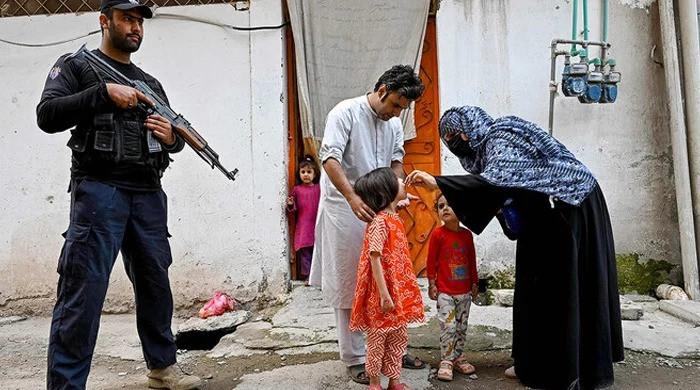
Tragic Incident in Swat: Security Personnel Guarding Polio Team Shot Dead
![Polio Vaccination]()
In a deeply troubling event reported on October 14, 2025, a Levies personnel who was providing security for a polio vaccination team was shot dead in Swat, Pakistan. This incident highlights the ongoing challenges faced by health workers and security forces in the fight against polio and the broader implications of violence against healthcare initiatives in the region.
The Context of Polio Vaccination in Pakistan
Polio remains a significant public health issue in Pakistan, which is one of the last countries where the disease is still endemic. Despite substantial efforts from the government and international organizations to eradicate the virus, misconceptions, fear, and security threats continue to hinder vaccination campaigns. The government has been conducting door-to-door vaccination drives, which are crucial for immunizing children against this debilitating disease.
Importance of Security for Health Workers
Given the sensitive nature of their work, health workers in regions like Swat often require protection while conducting vaccination campaigns. The Levies force, a local security agency, plays a pivotal role in safeguarding these teams, who are often met with hostility from segments of the population that harbor fears or misconceptions about the vaccine.
The Incident
The shooting incident occurred while the polio vaccination team was engaged in their routine activities. The Levies personnel, tasked with ensuring the safety of the health workers, became a target of violence. This tragic event underscores the risks that security forces face in the line of duty, as well as the potential repercussions for public health initiatives.
The Impact on Polio Eradication Efforts
The killing of security personnel can have far-reaching consequences for the ongoing fight against polio in Pakistan. The immediate impact includes:
1. Increased Hesitancy Among Health Workers: Such incidents can lead to reluctance among health workers to participate in vaccination campaigns, fearing for their safety. This can significantly reduce the coverage of vaccination drives, leaving more children vulnerable to the disease.
2. Heightened Security Measures: The need for increased security can divert resources away from health initiatives. Additional security measures may be required in areas deemed dangerous, which could complicate logistics and reduce the efficiency of vaccination campaigns.
3. Worsening Public Perception: Violence against healthcare workers can lead to a negative perception of these initiatives within the community. Misinformation about polio vaccines can be exacerbated by fears of violence, making it even more challenging to convince parents to vaccinate their children.
The Role of Community Engagement
To combat the fears and misconceptions surrounding polio vaccinations, community engagement is essential. Local leaders, influencers, and health workers must work together to build trust within the community. This can be done through:
- Awareness Campaigns: Educating the public about the benefits of the polio vaccine and addressing common myths.
- Engaging Trusted Community Figures: Involving local leaders and influencers can help sway public opinion in favor of vaccination efforts.
- Transparent Communication: Regular updates about the safety of health workers and the importance of vaccination can help alleviate fears.
Government and International Response
In light of the recent violence, the Pakistani government, along with international health organizations, must take decisive action. This includes:
- Strengthening Security Protocols: Ensuring that health workers and security personnel are adequately protected during vaccination campaigns.
- Increasing Funding for Health Initiatives: Allocating more resources to address the challenges faced by vaccination teams, including mental health support for workers who experience trauma from violence.
- Promoting Peaceful Coexistence: Initiatives aimed at fostering peace in conflict-affected regions can create a safer environment for health workers.
Conclusion
The shooting of a Levies personnel guarding a polio vaccination team in Swat is a stark reminder of the challenges faced in the battle against polio in Pakistan. As the country continues its efforts to eradicate this disease, it must prioritize the safety of its health workers while addressing the deep-seated fears and misconceptions that hinder vaccination efforts. Only through a collaborative approach that involves community engagement, robust security measures, and government support can we hope to achieve a polio-free future for Pakistan.
FAQs
1. What is the current status of polio in Pakistan?
Pakistan remains one of the few countries where polio is still endemic, with ongoing efforts to vaccinate children and eradicate the virus.
2. Why are polio vaccination teams targeted?
Polio vaccination teams sometimes face hostility due to misinformation, fears about the vaccine, and broader security issues in the region.
3. How does violence against health workers impact vaccination efforts?
Violence can deter health workers from participating in vaccination campaigns, leading to lower vaccination coverage and increased vulnerability to polio.
4. What can communities do to support polio vaccination efforts?
Communities can engage in awareness campaigns, involve trusted local figures, and foster a supportive environment for health initiatives.
5. What measures are being taken to protect health workers?
Efforts include strengthening security protocols, increasing funding for health initiatives, and promoting peace in conflict-affected areas.
Tags
National
